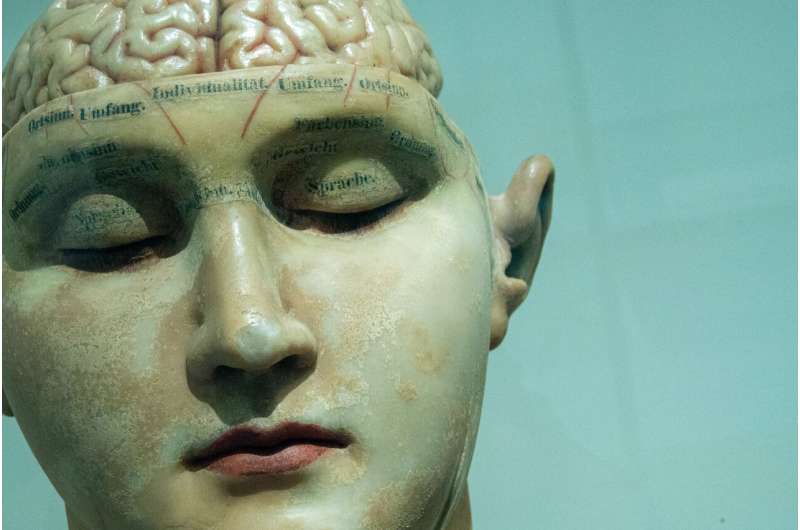Nonconscious brain modulation to remove fears, increase confidence could offer relieve from PTSD and phobias

Machine learning-based training of brain activity has led to exciting developments: reducing fears, changing preferences, and even increasing confidence. Unfortunately, data to better understand the mechanisms of brain self-regulation remain scarce. A group of researchers from Japan, the U.S. and Canada have joined forces to release the largest existing dataset of the sort.
In recent years, researchers have discovered ways to remove specific fears from the brain, increase confidence, or even change preferences, by using a combination of artificial intelligence and brain scanning technology. This technique could lead to new treatments for patients with conditions such as post-traumatic stress disorder (PTSD), phobias or anxiety disorders.
But while this technique is extremely promising, in some individuals, it is not successful. Why are there such differences in outcome? Better understanding of how the brain self-regulates its own activity patterns would go a long way toward establishing the technique for clinical use. The researchers who spearheaded this technique have thus released a unique dataset that includes five different studies in a bid to accelerate the translation from basic science to application.
The technique is called decoded neurofeedback, and is based on a method to read and identify specific information in the brain—for example, a fear memory. Senior author Dr. Mitsuo Kawato, director of the Computational Neuroscience Laboratories at the ATR Institute International in Japan, who pioneered the technique a decade ago, says, "In decoded neurofeedback experiments, brain scanning is used to monitor activity in the brain and identify complex patterns of activity that resemble a specific memory or mental state. When the pattern is detected, we give our experimental participants a small reward. The simple action of repeatedly providing a reward every time the pattern is detected modifies the original memory or mental state. Importantly, participants do not need to be aware of the patterns' content for this to work."
Dr. Aurelio Cortese, senior researcher at ATR Institute International and lead author of the paper, explained the reasons for releasing the data: "The decoded neurofeedback approach could have major benefits for clinical populations over traditional treatments. Patients could avoid the stress associated with exposure therapies or side-effects resulting from established drugs. As such, it is crucial we accelerate the development of the decoded neurofeedback technique—and this will only be possible if more scientists will be able to work on the actual data."
More information: Cortese A, Tanaka SC, Amano K, Koizumi A, Lau H, Sasaki Y, Shibata K, Taschereau-Dumouchel V, Watanabe T, Kawato M. The DecNef collection, fMRI data from closed-loop decoded neurofeedback experiments. Scientific Data. DOI: 10.1038/s41597-021-00845-7
Shibata K, Watanabe T, Kawato M, Sasaki Y (2016) Differential activation patterns in the same brain region led to opposite emotional states: PLoS Biol. 14(9): e1002546. DOI: 10.1371/journal.pbio.1002546.
Amano K, Shibata K, Kawato M, Sasaki Y, Watanabe T (2016) Learning to associate orientation with color in early visual areas by associative decoded fMRI neurofeedback. Curr Biol. 26(14):1861-1866. DOI: 10.1016/j.cub.2016.05.014.
Koizumi A, Amano K, Cortese A, Shibata K, Yoshida W, Seymour B, Kawato M, Lau H (2016) Fear reduction without fear through reinforcement of neural activity that bypasses conscious exposure. Nat Hum Behav. 1:0006. DOI: 10.1038/s41562-016-0006.
Cortese A, Amano K, Koizumi A, Kawato M, Lau H (2016) Multivoxel neurofeedback selectively modulates confidence without changing perceptual performance. Nat Commun. 7:13669. DOI: 10.1038/ncomms13669.
Taschereau-Dumouchel V, Cortese A, Chiba T, Knotts JD, Kawato M, Lau H (2018) Towards an unconscious neural reinforcement intervention for common fears. Proc Natl Acad Sci. 115(13):3470-3475. DOI: 10.1073/pnas.1721572115.















